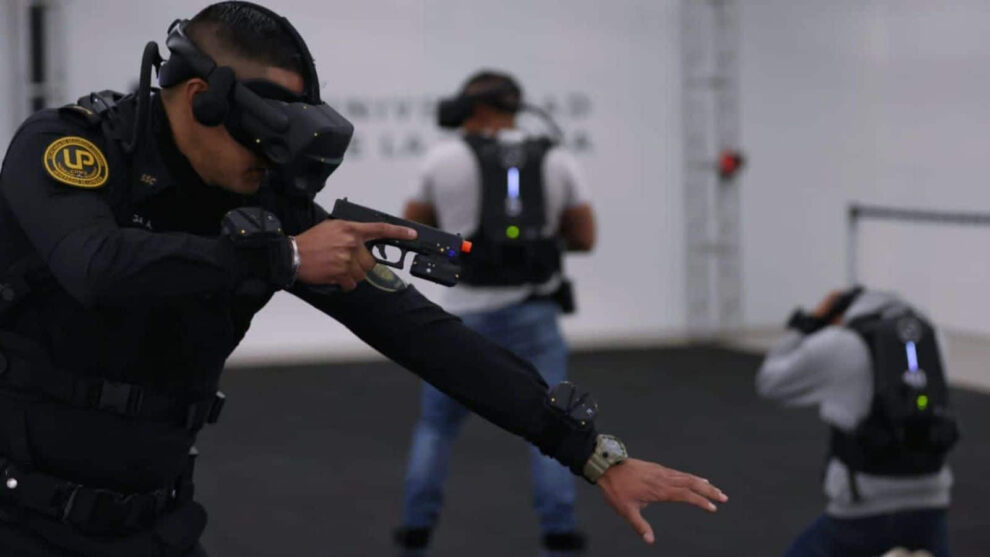It looks like a modern version of laser tag, or someone taking a VR computer game too seriously – but police in Mexico are now training to take on virtual bad guys within virtual reality.
Mexico City has opened Latin America’s first VR training centre for police officers, where they can improve their reflexes and practice manoeuvres.
The centre was opened on February 15, in a city of 9 million – where local authorities claim crime has been on the decrease for three years.
It was inaugurated by the Secretary of Security Omar Garcia Harfuch, who was himself injured in an attack in June 2020.
Two of his bodyguards and a passerby were killed in the attack, attributed to the Jalisco New Generation Cartel, one of the country’s most powerful criminal gangs.
Within the three-dimensional world of the VR headset, police officers showed off a simulated intervention among civilians.
Their mission was to free a child taken hostage in Tepito, a neighbourhood that is the stronghold of the capital’s main gang.
With a computer in a backpack and armed with rifles, the officers approach the hostage-taker, force him to drop his weapon and release his victim.
Investment in virtual policing
They “can interact with real or virtual avatars, in extremely realistic graphic representations,” explained Harfuch, who added that VR allows for the reproduction of different intervention locations: “schools, shopping centres, restaurants, highways, aeroplanes”.
“Only three police forces in the United States and the Israeli police have this virtual reality system,” the local government said in a statement.
The centre, located on the premises of the police university, has “100 motion capture cameras” and various types of virtual rifles and revolvers, it added.
Mexico invested 60 million pesos (€3 million), according to the head of the city government Claudia Sheinbaum, who highlighted a savings of 4 million pesos (€206,000) in ammunition.
In the United States, police officers in New York and Los Angeles are also using virtual reality to improve their reflexes in emergency situations such as shootings.
In 2019, the European Union funded a “Shotpros project” for virtual reality to “design better training modules for police officers”.
“It aims to improve their overall performance in stressful situations,” according to a statement on the European Commission’s website.
In Belgium, thousands of police officers have already followed this programme, the federal government and authorities in Antwerp said in September.
Source: euronews
















